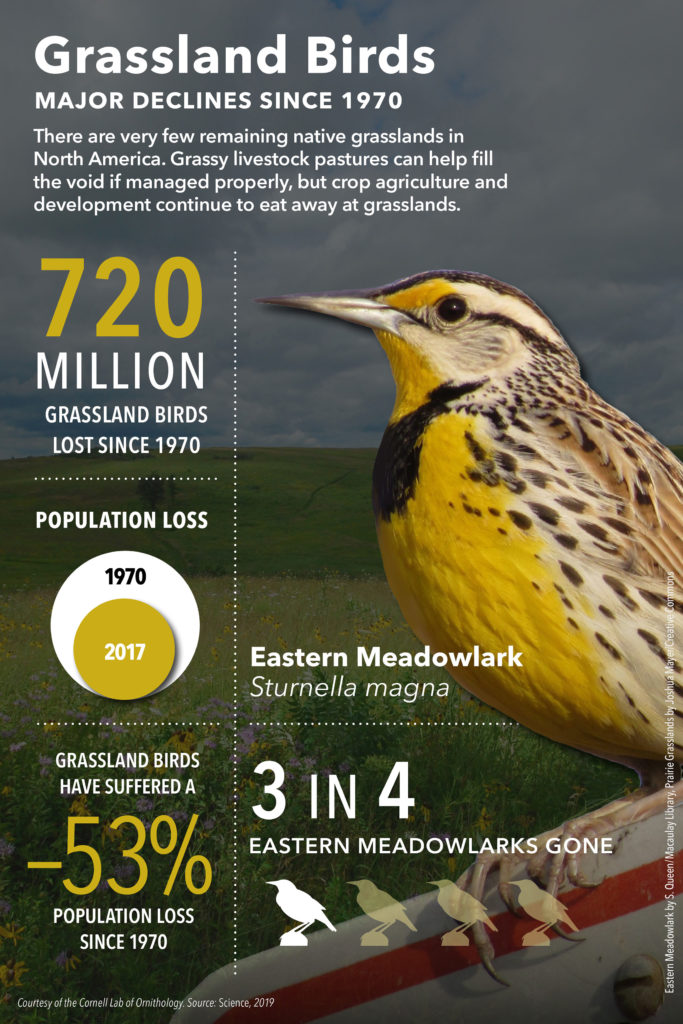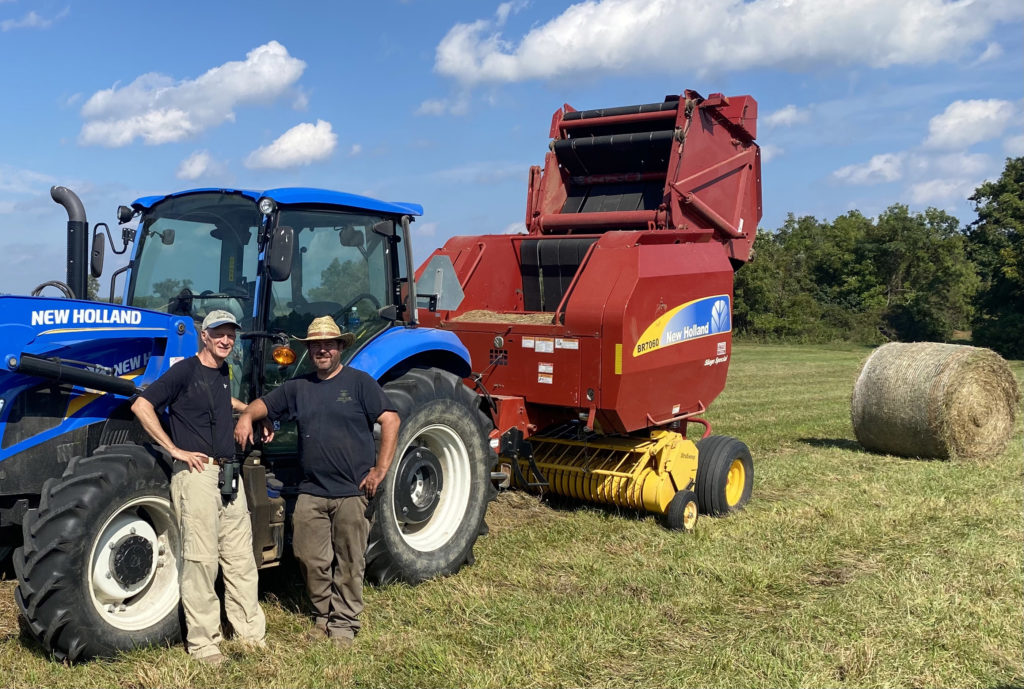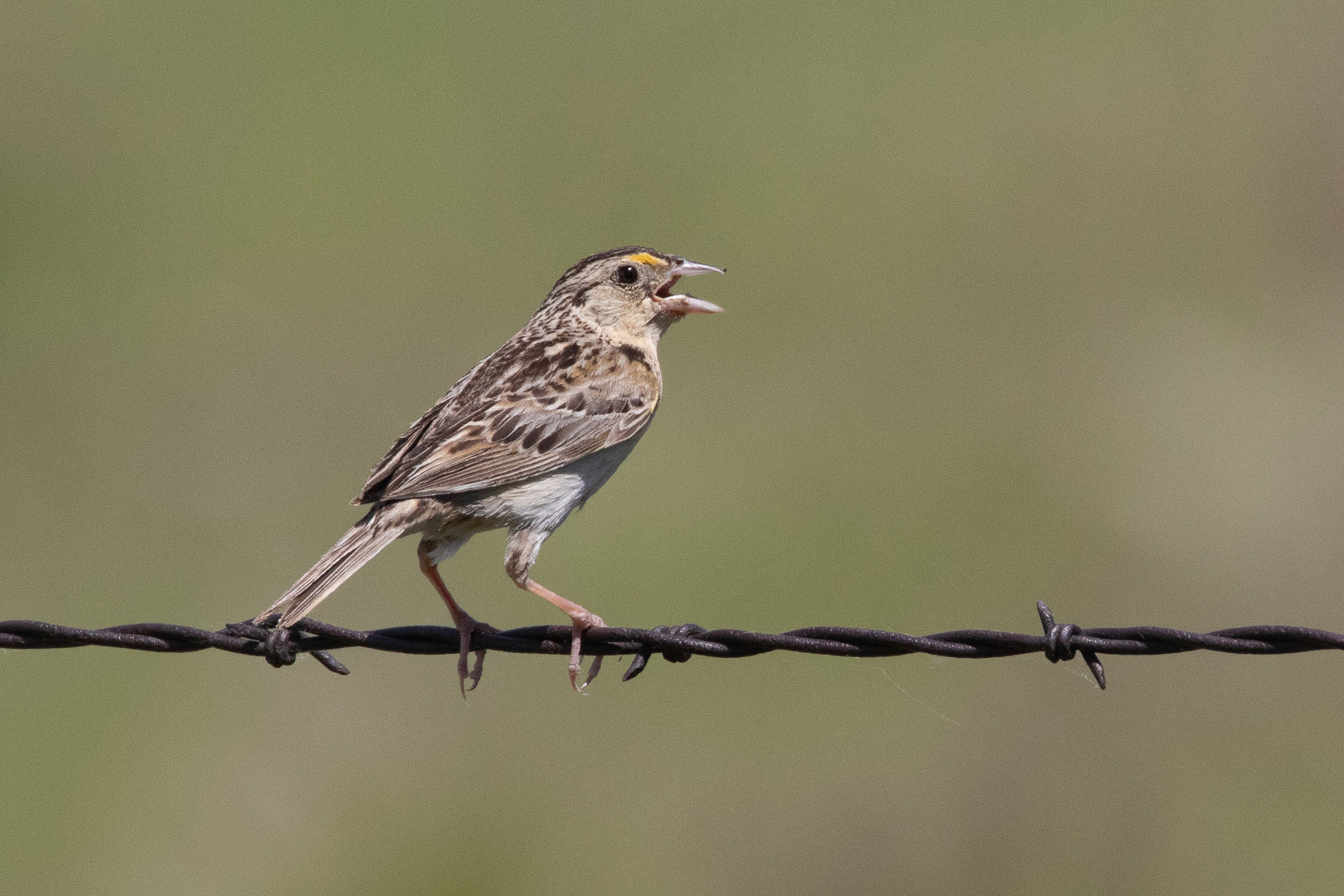Southern Maryland is home to an abundance of wildlife, but for many species of birds, time is running out. Grassland species in particular–including the Eastern Meadowlark and the Grasshopper Sparrow—have suffered drastic declines.
The Maryland State Wildlife Action Plan lists both as “Species of Greatest Conservation Need.” Their populations have crashed as hayfields have been converted to development or cropland. In our remaining hayfields, the potential conflict between hay harvest and nesting birds can seriously reduce nesting success, particularly in the spring.
Southern Maryland Audubon is partnering with the Patuxent Tidewater Land Trust (Patuxent-Tidewater.org) , Historic Sotterley (Sotterley.org), and Farmers Feeding Southern Maryland, to find practical solutions that balance the needs of hay farmers and birds so that both can thrive.

Baling Hay Without Baling birds
Eastern Meadowlarks and Grasshopper Sparrows breed successfully in large hayfields of 20 acres or more. The peak breeding period is mid-May to mid-June. The first mowing in May/June can be particularly lethal, destroying eggs, nests and recently hatched young that cannot escape the repeated passes of heavy equipment. During this period, these ground-nesting birds are particularly vulnerable to haying operations.

Grassland Ambassadors
From the landowners’ perspective, there are actions that can be taken to maintain the value of their crop while reducing bird mortality. It begins with getting good information about which birds are using which fields, and what harvesting techniques are particularly beneficial to the birds. That is why we have established a program to share information about grassland birds that rely on nesting in hayfields and to explore hay management options that might work for some landowners, depending on their priorities. We call this our Grassland Ambassadors program.
Our Grassland Ambassadors ar prepared to visit any landowner in Southern Maryland on request to determine whether their fields are hosting nesting Meadowlarks, Grasshopper Sparrows, Barn Owls, Kestrels, Dickcissels or other grassland-dependent species. Our Ambassadors will will share options for harvesting that increase nesting success while maintaining necessary hay harvest.
And if your property looks right for a nesting box for Barn Owls or American Kestrels, our Grassland Ambassadors can give you advice on how to install one or provide you with a nesting box and improve the habitat for the grassland-dependent raptors.
To get started, just contact our Saving Grassland Birds program at Ambassadors.somdaudubon@gmail.com and ask for a visit from a Grassland Ambassador.
